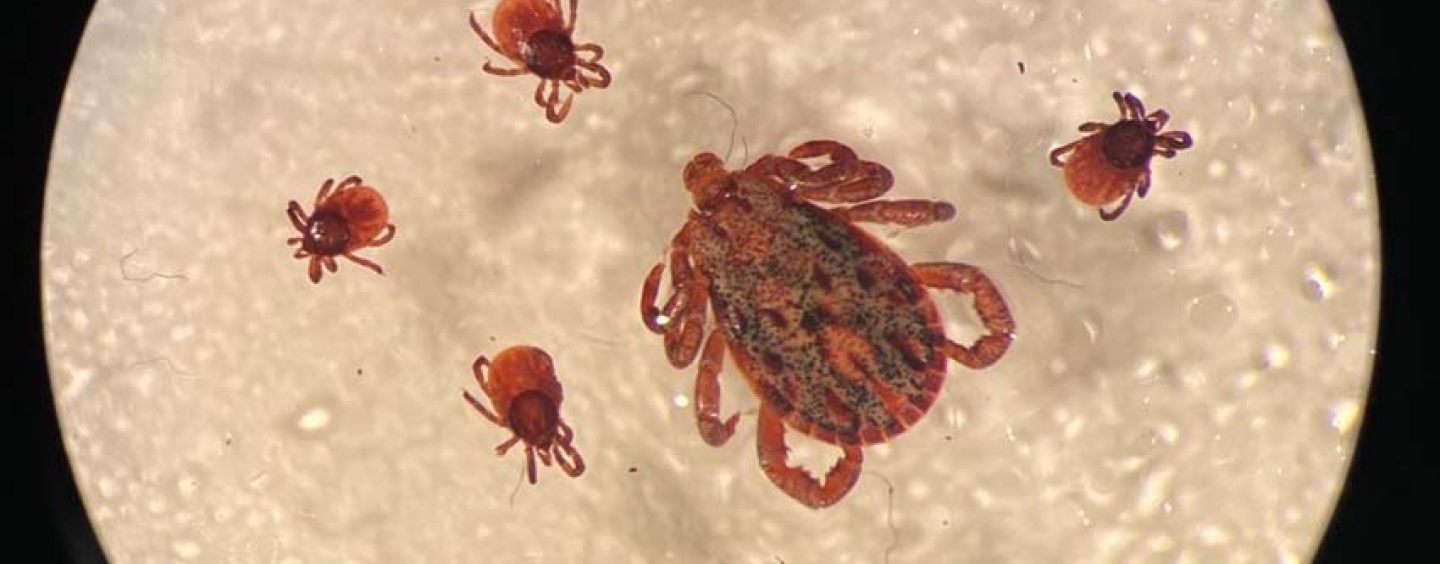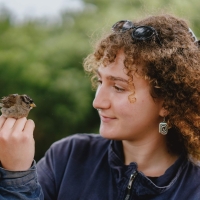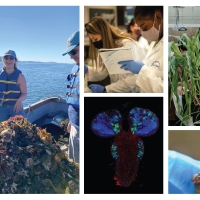Grad student explores icky new angle on health inequities: ticks

Jacoby Clark hopes to bridge entomology and social justice as an inaugural Public Health Entomology for All fellow
Graduate student Jacoby Clark
Only three to five millimeters long, ticks are tiny but can harbor other smaller organisms that can mean big problems for human health. San Francisco State University graduate student Jacoby Clark wants to understand how ticks are spreading disease and how to prevent transmission. He was recently selected to be part of the inaugural cohort of a new one-year fellowship at the Centers for Disease Control and Prevention (CDC), where he’ll build on his thesis work through a public health and social justice lens.
“This is a program where we’re serving as public health entomologists,” explained Clark, who started his fellowship this summer. “We’re trying to bridge the intersection between entomology, health equity and social justice.”
Clark is one of two fellows in the Public Health Entomology for All (PHEFA) program, a partnership between the CDC and the Entomological Society of America. The program targets aspiring public health entomologists from underrepresented communities who studied at minority-serving institutions, such as SF State, in an effort to diversify and make entomology more inclusive for various backgrounds.
“Ticks live in this amazing world that we also share with them,” Clark said. “But within the tick, there’s an even more exciting world with bacteria.”
When ticks latch onto a host species (like humans), they cut skin and insert their hypostome to take a bloodmeal. During this bloodmeal they slowly suck blood for several days and, if unnoticed, can transmit potentially dangerous organisms, also called pathogens, to the host they feed on. Clark is specifically studying bacterial diseases of major public health concern such as Lyme disease and anaplasmosis.
Ticks use their hypostome (center) for their bloodmeal
While he’s studying bacterial tick pathogens through his PHEFA fellowship, Clark is wrapping up his thesis at SF State, where he investigated how climate change and declining host diversity influence tick pathogen diversity and prevalence. He works in the lab of SF State Associate Professor of Biology Andrea Swei, who introduced him to the PHEFA fellowship after learning about his interests in public health policy.
“The burden and the recent rise of diseases that are spread by ticks are starting to be recognized as a public health concern,” Clark explained.
Earlier studies have focused on white populations. But clinical manifestations of tick-borne diseases present differently in people of color. Clark notes that there’s been a shift in research, with more scientists studying diseases and disease manifestations in communities of color. He looks forward to learning more and furthering efforts to make public health education more accessible.
A goal of the PHEFA fellowship is to bring more scientists of color — like Clark — into entomology and public health.
“I’m an Indigenous scientist, and there aren’t a lot of us that are in academia or in government. It’s been kind of difficult to connect across the board and even in school,” said Clark, who identifies as a first-generation, Indigenous, gay scholar.
Other than a brief summer research opportunity, SF State was Clark’s first experience in intensive, long-term research. As a graduate student, he was supported by an NIH RISE fellowship from the Student Enrichment Office at SF State, and the Provost Scholars Award in his second year. While he gets settled at the CDC, he’s simultaneously finishing his last semester with Swei and writing his thesis dissertation.
“[The PHEFA fellowship shows] that we can kind of have a more expansive scope when we come to the public,” Clark said. “Because ultimately, if we’re serving the public, we need to look like the public.”
Learn more about Biology Department student and faculty research at SF State. Learn more about the Public Health Entomology for All (PHEFA) program.



